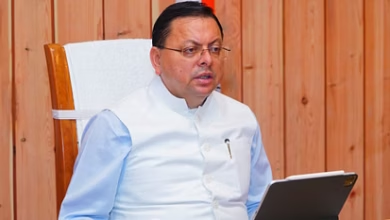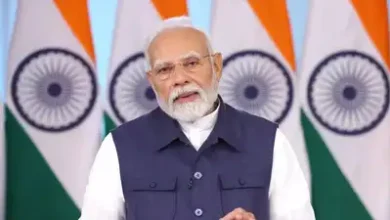- Resilience & Reinvention: Ghana navigates economic currents and political shifts with breaking news in ghana today shaping a future defined by progress and adaptation.
- Economic Resilience in the Face of Global Headwinds
- Political Shifts and their Impact on Governance
- Challenges to Democratic Consolidation
- The Role of Technology and Innovation
- Sustainable Development and Environmental Concerns
- Regional Integration and International Partnerships
Resilience & Reinvention: Ghana navigates economic currents and political shifts with breaking news in ghana today shaping a future defined by progress and adaptation.
The recent economic and political landscape of Ghana has been a focal point of international attention, with breaking news in ghana today consistently highlighting both challenges and opportunities. From shifts in government policy to fluctuations in global commodity prices, the nation is navigating a complex period of transformation. This period demands adaptability, innovation, and a resilient approach to development, as Ghana strives to secure a prosperous future for its citizens. Understanding these dynamics is crucial for investors, policymakers, and anyone seeking to grasp the ongoing evolution of this West African nation.
Economic Resilience in the Face of Global Headwinds
Ghana’s economy, traditionally reliant on commodities like cocoa, gold, and oil, has faced considerable pressure from global market volatility. Decreasing commodity prices, coupled with rising debt levels, have created a challenging fiscal environment. However, the government has implemented several measures aimed at stabilising the economy, including fiscal consolidation efforts and diversification strategies. These policies focus on expanding the manufacturing sector, promoting agricultural innovation, and attracting foreign investment. The successful implementation of these strategies is vital for achieving sustainable economic growth and reducing the nation’s vulnerability to external shocks. Maintaining macroeconomic stability remains a key priority, and sustained efforts are crucial to ensure long-term economic health.
| Economic Indicator | 2022 | 2023 (Estimate) | 2024 (Projected) |
|---|---|---|---|
| GDP Growth Rate (%) | 3.4 | 2.6 | 4.1 |
| Inflation Rate (%) | 31.7 | 25.7 | 18.5 |
| Debt-to-GDP Ratio (%) | 81.8 | 84.5 | 80.0 |
| Current Account Balance (% of GDP) | -3.6 | -2.8 | -2.0 |
Political Shifts and their Impact on Governance
Recent political developments in Ghana have been characterised by a robust democratic process, though not without their complexities. The interplay between the ruling New Patriotic Party (NPP) and the opposition National Democratic Congress (NDC) continues to shape the nation’s political discourse. Current debates center around issues such as corruption, unemployment, and the equitable distribution of resources. The government’s commitment to strengthening democratic institutions, promoting transparency, and upholding the rule of law are critical for fostering public trust and ensuring good governance. The upcoming elections are expected to be closely contested, highlighting the importance of peaceful and credible electoral processes.
Challenges to Democratic Consolidation
Despite Ghana’s reputation as a beacon of democracy in West Africa, several challenges remain. These include the influence of money in politics, the potential for electoral violence, and concerns about the independence of the judiciary. Strengthening civil society organizations, promoting media pluralism, and empowering citizens to participate actively in the political process are essential steps towards consolidating democratic gains. Furthermore, addressing systemic corruption and promoting accountability are crucial for restoring public confidence in government institutions. Improving political dialogue and fostering a culture of tolerance are also vital to create a more inclusive participative political landscape.
- Strengthening Electoral Commission Independence
- Enhancing Campaign Finance Regulations
- Promoting Civic Education and Participation
- Investing in Judicial Reform
- Fostering Media Pluralism
The Role of Technology and Innovation
Ghana is experiencing a burgeoning tech scene, driven by a youthful population and increasing access to technology. Innovations in fintech, agritech, and healthcare are transforming various sectors of the economy. The government is actively promoting a digital economy through initiatives like the Ghana Digital Transformation Project, and investments in broadband infrastructure. The rise of entrepreneurship, particularly among young people, is creating new opportunities for employment and economic growth. However, addressing the digital divide, improving digital literacy, and fostering an enabling regulatory environment are crucial for unlocking the full potential of technology for inclusive development.
Sustainable Development and Environmental Concerns
The pursuit of sustainable development is paramount for Ghana’s long-term prosperity. Protecting natural resources, addressing climate change, and promoting environmental stewardship are critical priorities. Deforestation, illegal mining (galamsey), and pollution pose significant threats to the environment and public health. The government is implementing initiatives to combat these challenges, including reforestation programs, stricter regulations on mining, and investments in renewable energy. Strengthening environmental governance, promoting sustainable agricultural practices, and raising public awareness are essential for safeguarding Ghana’s natural heritage for future generations.
| Environmental Challenge | Government Initiatives | Expected Outcomes |
|---|---|---|
| Deforestation | Reforestation Programs, Agroforestry | Increased Forest Cover, Biodiversity Conservation |
| Illegal Mining (Galamsey) | Stricter Regulations, Community Enforcement | Reduced Environmental Damage, Improved Water Quality |
| Plastic Pollution | Plastic Waste Management Policies, Recycling Programs | Reduced Plastic Waste, Cleaner Environment |
| Climate Change | Renewable Energy Investments, Climate Adaptation Strategies | Reduced Carbon Emissions, Increased Resilience |
Regional Integration and International Partnerships
Ghana plays a pivotal role in regional integration efforts within the Economic Community of West African States (ECOWAS). Promoting trade, fostering peace and security, and strengthening regional institutions are key objectives. Ghana also seeks to deepen its partnerships with international organisations, such as the World Bank, the International Monetary Fund, and the African Development Bank. These partnerships provide crucial financial and technical assistance to support Ghana’s development agenda. Maintaining strong diplomatic relations and actively participating in global forums are essential for advancing Ghana’s interests on the international stage.
- Access to wider markets through reduced trade barriers.
- Increased foreign investment and economic cooperation.
- Enhanced regional security and stability.
- Opportunities for knowledge and technology transfer.
Ghana’s journey toward sustained progress is marked by both significant advancements and persistent challenges. The ability to skillfully navigate these complexities, embrace innovation, and foster inclusive governance will define its trajectory in the years ahead. Continued dedication to macroeconomic stability, responsible resource management, and strengthening democratic institutions are vital to secure the nation’s prosperity and improve the lives of all Ghanaians.
| Partnership | Area of Cooperation | Key Initiatives |
|---|---|---|
| World Bank | Infrastructure Development, Education, Health | Ghana Skills Development Project, Greater Accra Resilience and Integrated Development (GARID) |
| IMF | Macroeconomic Stability, Fiscal Consolidation | Extended Credit Facility Program |
| African Development Bank | Agriculture, Energy, Infrastructure | Ghana Agricultural Transformation Program |




